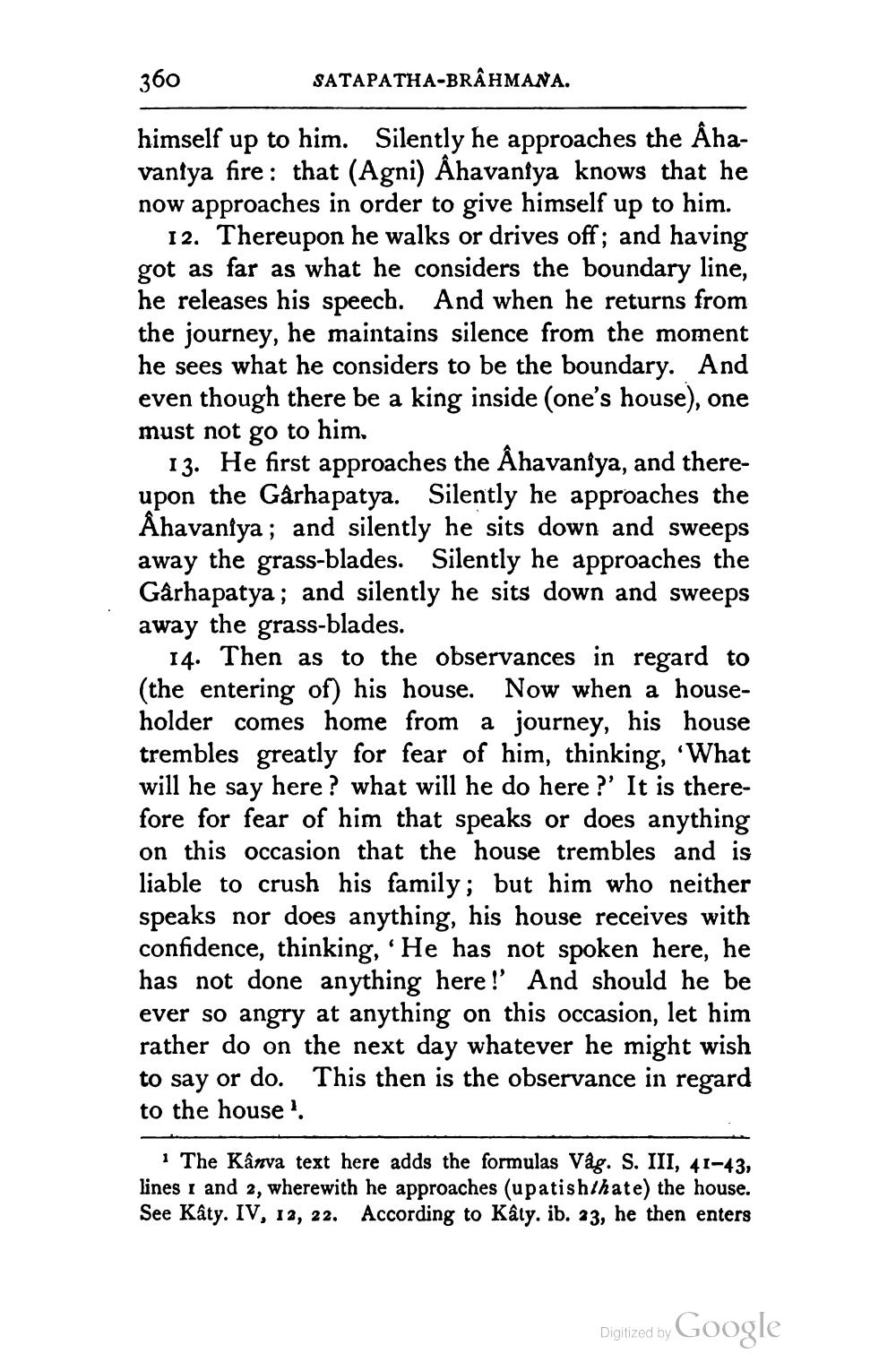________________
360
SATAPATHA-BRAHMANA.
himself up to him. Silently he approaches the Åhavantya fire: that (Agni) Åhavaniya knows that he now approaches in order to give himself up to him.
12. Thereupon he walks or drives off; and having got as far as what he considers the boundary line, he releases his speech. And when he returns from the journey, he maintains silence from the moment he sees what he considers to be the boundary. And even though there be a king inside (one's house), one must not go to him.
13. He first approaches the Ahavaniya, and thereupon the Gârhapatya. Silently he approaches the Åhavanfya; and silently he sits down and sweeps away the grass-blades. Silently he approaches the Gârhapatya ; and silently he sits down and sweeps away the grass-blades.
14. Then as to the observances in regard to (the entering of) his house. Now when a householder comes home from a journey, his house trembles greatly for fear of him, thinking, 'What will he say here? what will he do here ?' It is therefore for fear of him that speaks or does anything on this occasion that the house trembles and is liable to crush his family; but him who neither speaks nor does anything, his house receives with confidence, thinking, 'He has not spoken here, he has not done anything here!' And should he be ever so angry at anything on this occasion, let him rather do on the next day whatever he might wish to say or do. This then is the observance in regard to the house.
1 The Kânva text here adds the formulas Våg. S. III, 41-43, lines I and 2, wherewith he approaches (upatishthate the house. See Kâty. IV, 12, 22. According to Kâty. ib. 23, he then enters
Digitized by Google




